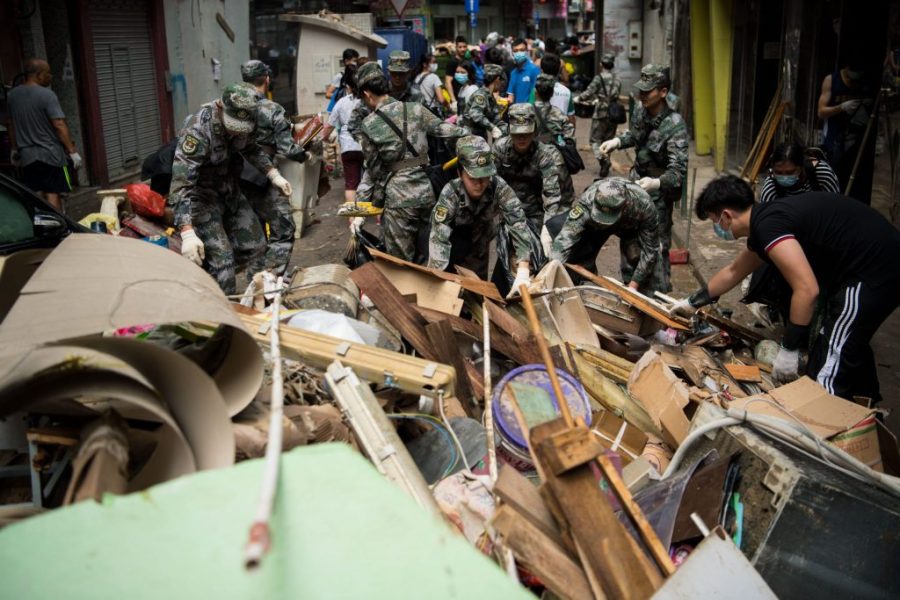Secretary for Economy and Finance Lionel Leong Vai Tac said on Wednesday that the government estimates that last month’s Super Typhoon Hato directly and indirectly caused Macau financial losses of MOP 11.47 billion (US$ 1.47 billion)- about half of the gaming industry’s gross receipts last month.
The gaming industry’s gross receipts in August amounted to MOP 22.6 billion, according to the Gaming Inspection and Coordination Bureau (DICJ).
In the first seven months of the year, the government’s revenue totalled MOP 64 billion, according to the Finance Services Bureau (DSF).
Leong made the remarks during a special press conference about the government’s measures to bring the city, hit hard by Hato on August 23, back to normal and what it plans to do to improve its mechanism for responding to major disasters. The press conference was held at Government Headquarters. It was chaired by Chief Executive Fernando Chui Sai On and various other senior government officials.
Leong said a preliminary estimation indicated that the financial losses from Hato – as measured so far – amount to MOP 11.47 billion, comprising MOP 8.31 billion of direct losses and MOP 3.16 billion indirect ones.
Leong said the indirect losses refer to potential losses incurred by firms that had to suspend business operations due to typhoon damage.
Leong said that the estimates of the financial losses were carried out by the Statistics and Census Bureau (DSEC), adding that DSEC officials collected data and information from various government entities including the Macau Monetary Authority (AMCM), Gaming Inspection and Coordination Bureau (DICJ), Civic and Municipal Affairs Bureau (IACM) and Public Security Police (PSP) for analysis.
Leong said the DSEC officials estimated the financial losses by using the bureau’s historical data of the city’s various business sector performances.
He said the officials also carried out on-site inspections of damaged buildings in some of the areas affected by the typhoon which killed 10 people and injured 244 in Macau, according to official figures. The DSEC officials also interviewed a number of business owners about their financial losses.
Leong said the officials also analysed the data by using applications submitted by entrepreneurs for interest-free loans for their businesses affected by Hato.
Leong also said that while Hato had brought financial losses to residents and business owners, the local economy continued to grow, adding that the government believed that Macau’s economy will produce single-digit growth this year.
According to the Statistics and Census Bureau, the city’s gross domestic product (GDP) grew by 10.9 percent year-on-year in real terms during the first half of the year.




